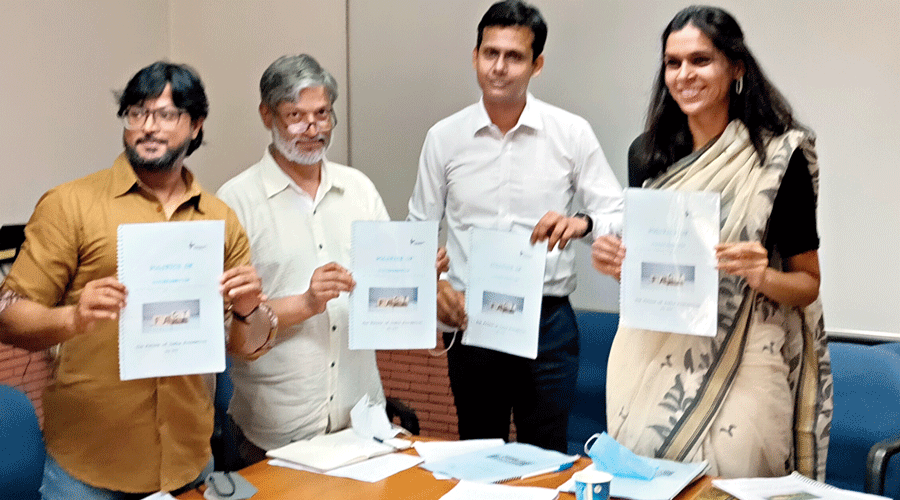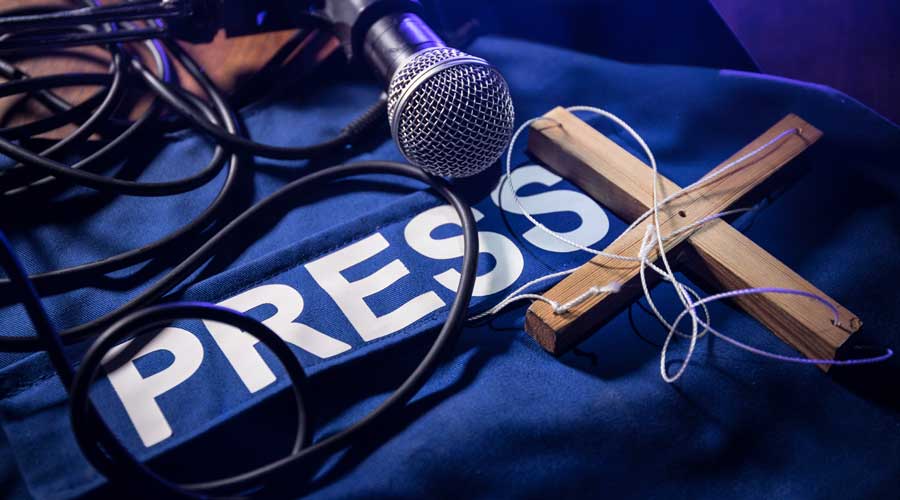The way social media platforms now moderate content is more “a public relations exercise” than one “geared to stop the spread of misinformation”, a study that surveyed Indian youth has concluded.
Among the recommendations made in the report, “Politics of disinformation”, by the Future of India Foundation are
⚫ A transparency law that requires social media platforms to explain the grounds for any action such as removal or amplification (helping reach a wider audience) of any content.
⚫ Parliamentary oversight on social media, with a regulator reporting to Parliament rather than any government department.
⚫ Credibility-linked amplification of social media posts by the platforms.
Platforms tend to argue that there’s so much hate speech that they can’t possibly monitor and take down all of it. Also, they often link the issue to free speech.
But the report suggests the bigger problem is that the platforms themselves help spread fake news and hate content through their “value-neutral” policy of amplifying whatever receives bigger engagement (likes, shares and comments) instead of amplifying posts after checking for credibility and quality.
The overall prescription the report offers is: “…A hands-off approach to (amplifying) content (and by extension content creators)…; exercise clear editorial choice and take responsibility for amplified content; or amplify only credible sources (irrespective of ideological affiliation).
“Connected to the third choice, this report argues that the current approach to misinformation which relies on fact-checking a small subset of content in a vast ocean of un-reviewed content is inadequate to the task and needs to be supplemented by a review of content creators itself.”
The report adds: “Platforms incentivise extreme content, much of which is likely to be disinformation, in two ways: through amplification algorithms, which are predicated on engagement instead of quality thus privileging borderline content (which get more organic engagement); and the signalling of high engagement as a driver of importance of a piece of content.
“Platforms can make two immediate improvements in this regard: hide engagement numbers on content and eliminate trending topics. Trends have been increasingly hijacked by organised entities acting in coordinated manner and are no longer an indicator of popular issues animating the public.”
The report derives from focus group discussions on Covid with people aged 18 to 35 in Uttar Pradesh, Rajasthan, Uttarakhand, Haryana, Delhi, Madhya Pradesh, Andhra Pradesh and Telangana between October 2021 and January 2022.
Speaking at the report’s launch on Thursday, co-author and former Congress politician Ruchi Gupta said: “Free speech is used as a red herring by platforms which currently enjoy freedom from liability. Liability has to be linked to norms, and the distribution model.”
Gupta added: “A platform has to take responsibility for amplifying a post. Platforms have now become publishers as they not only curate content but also push new content — which often violates their own norms — and also pay creators to make exclusive content for them.”
The report says: “The evolution of the global discourse on misinformation too has allowed itself to get mired in the details of content standards, enforcement, fact checking, takedowns, deplatforming, etc --- a framework which lends itself to bitter partisan contest over individual pieces/ types of content while allowing platforms to disingenuously conflate the discourse on moderating misinformation with safeguards for freedom of expression.
“However, these issues are at best adjunct to the real issue of disinformation and this report conclusively establishes that the current system of content moderation is more a public relations exercise for platforms instead of being geared to stop the spread of misinformation.”
It adds: “The underlying issue for pervasive misinformation is thus driven more by value-neutral amplification of content propagating misinformation instead of failure to outrightly remove misinformation. However, platforms have bypassed the discussion around amplified distribution and are exclusively framing measures to reduce misinformation as being in ‘tension’ with freedom of expression -- an issue which can arise only in the case of outright removal.
“As private companies, the issue in the case of outright removal of content is not freedom of speech but political neutrality of the platform. The degree of permissiveness for misinformation, hate speech, etc, is thus a political and/ or commercial choice by the platforms.”
Co-author and education activist Saurabh Sharma said: “In one of the focus group discussions in Rajasthan, a young man in a small town said he had stopped buying fruits from a vendor of a certain community because of ‘information’ he got over social media that held the community responsible for Covid.
“His views changed in the course of the discussion but there is no accountability on a platform that allows such fake information to be spread on a par with real news.”
RTI pioneer Nikhil Dey said at the launch, at the National Foundation of India, here: “Today it is impossible, because of these platforms, for a user to distinguish propaganda from journalism. We are not pushing (only) for a law to empower Parliament, but (looking to) empower citizens as well.
“When the idea of RTI emerged 30 years ago, there was not a sliver of a right, but we fought for it like it was our birthright and we should do the same now…. The cooperation of social media companies with governments and parties is so incredible that neither the parties nor Parliament is in a position to take them on like we as citizens are (in).”











